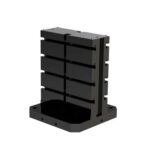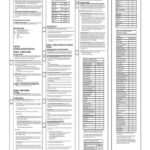Overview of Design Review Competitions
Design review competitions are events where participants submit their designs to be evaluated and judged by a panel of experts. These competitions can be held in various fields, such as architecture, product design, graphic design, and more. The purpose of these competitions is to showcase talent, promote innovation, and reward outstanding designs.
Key Elements of Design Review Competitions
- Submission Guidelines
- Judging Criteria
- Prizes and Awards
- Intellectual Property Rights
Legal Considerations for Design Review Competitions
When organizing or participating in a design review competition, it is essential to be aware of the legal rules and regulations that govern such events. These rules help ensure fairness, protect the rights of all parties involved, and prevent any potential disputes or legal issues.
Eligibility and Entry Requirements
- Age restrictions
- Professional qualifications
- Geographical limitations
- Entry fees
Submission Guidelines and Format
- File types and sizes
- Anonymity of submissions
- Deadlines and extensions
- Disqualification criteria
Judging Process and Criteria
- Selection of judges
- Evaluation criteria
- Scoring system
- Feedback and communication with participants
Prizes, Awards, and Benefits
- Cash prizes
- Non-monetary awards (e.g., scholarships, internships)
- Publication and exposure opportunities
- Tax implications for winners
Intellectual Property Rights and Ownership
- Copyright ownership of submitted designs
- Licensing agreements for winning designs
- Non-disclosure agreements (NDAs) for judges and organizers
- Disputes and resolution processes
Case Studies of Design Review Competitions
To better understand the legal aspects of design review competitions, let’s examine some real-world examples and their specific legal rules.
Case Study 1: The International Design Excellence Awards (IDEA)
The IDEA competition, organized by the Industrial Designers Society of America (IDSA), is a prestigious annual event that recognizes exceptional product designs across various categories.
Legal Rules and Regulations:
- Eligibility: Open to designers, students, and companies worldwide
- Submission Format: Digital files, including images and videos
- Judging Criteria: Innovation, user experience, sustainability, and more
- Intellectual Property: Participants retain ownership of their designs
Case Study 2: The Adobe Design Achievement Awards (ADAA)
The ADAA is a global competition that celebrates creativity and innovation among student designers using Adobe software.
Legal Rules and Regulations:
- Eligibility: Open to students aged 18 and older, enrolled in accredited institutions
- Submission Format: Digital files created using Adobe software
- Judging Criteria: Originality, technical proficiency, and adherence to brief
- Intellectual Property: Adobe retains the right to use winning designs for promotional purposes

Best Practices for Organizing Design Review Competitions
If you are planning to organize a design review competition, consider the following best practices to ensure a successful and legally compliant event:
- Clearly define eligibility criteria and entry requirements
- Provide detailed submission guidelines and format specifications
- Establish a transparent and fair judging process
- Offer attractive prizes and benefits to participants
- Protect the intellectual property rights of all parties involved
- Seek legal advice when drafting competition rules and agreements
Frequently Asked Questions (FAQ)
-
Q: Can I submit a design that I created for a client or employer?
A: It depends on the specific rules of the competition and the agreement you have with your client or employer. Make sure to review the submission guidelines and seek permission if necessary. -
Q: What happens if I miss the submission deadline?
A: Most competitions have strict deadlines, and late submissions are not accepted. However, some competitions may offer extensions under certain circumstances. Check the competition rules or contact the organizers for clarification. -
Q: Can I submit multiple designs to the same competition?
A: Again, this depends on the specific rules of the competition. Some competitions may allow multiple submissions, while others limit participants to a single entry. Review the submission guidelines carefully. -
Q: Who owns the intellectual property rights to my submitted design?
A: In most cases, participants retain ownership of their designs. However, some competitions may require participants to grant certain rights or licenses to the organizers or sponsors. Make sure to read and understand the intellectual property clauses in the competition rules. -
Q: What if I disagree with the judges’ decision or feel that the competition was unfair?
A: Most competitions have a clear judging process and criteria, and the decisions of the judges are usually final. If you have concerns about the fairness of the competition, you can reach out to the organizers and express your concerns. However, be aware that legal action is rarely necessary or successful in such cases.
Conclusion
Design review competitions provide a platform for designers to showcase their skills, gain recognition, and advance their careers. However, it is crucial for both organizers and participants to understand and adhere to the legal rules and regulations that govern these events. By following best practices, clearly defining competition rules, and protecting the rights of all parties involved, design review competitions can be a rewarding and legally compliant experience for everyone.
| Element | Key Considerations |
|---|---|
| Eligibility and Entry Requirements | Age restrictions, professional qualifications, entry fees |
| Submission Guidelines and Format | File types and sizes, anonymity, deadlines, disqualification criteria |
| Judging Process and Criteria | Selection of judges, evaluation criteria, scoring system, feedback |
| Prizes, Awards, and Benefits | Cash prizes, non-monetary awards, tax implications |
| Intellectual Property Rights and Ownership | Copyright ownership, licensing agreements, non-disclosure agreements |
By addressing these key elements and seeking legal advice when necessary, organizers can create a fair, transparent, and legally sound design review competition that benefits all stakeholders.






Leave a Reply